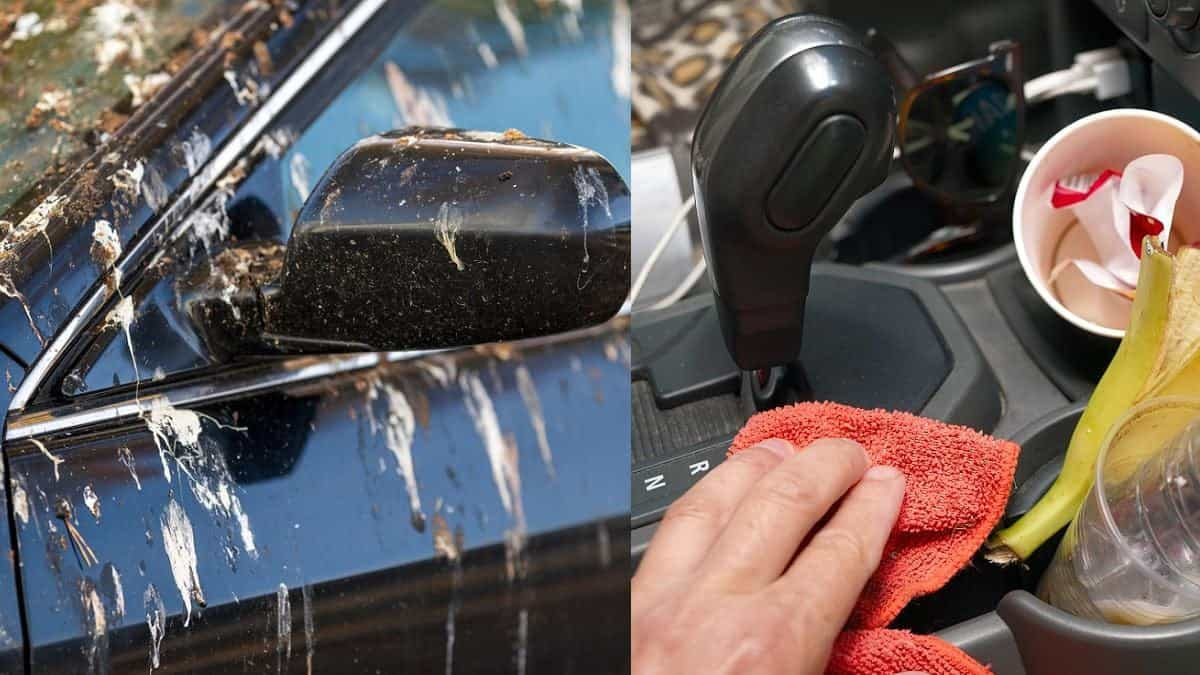Show table of content Hide table of content
Driving down the highway with the radio playing your favorite tunes feels like freedom – until you realize your hands are gripping a bacterial playground. That smooth steering wheel you touch every day harbors a disturbing secret: it’s dirtier than your toilet. Health experts have raised alarms about this overlooked cleaning spot in vehicles that most drivers neglect despite daily contact.
The unseen danger lurking on your car steering wheel
Your vehicle may look spotless after a thorough weekend cleaning session. You’ve vacuumed the floor mats, wiped down the dashboard, and even cleaned those hard-to-reach air vents. Yet the one surface that receives the most human contact often escapes attention completely. The steering wheel ranks as the most contaminated area in your entire vehicle, according to automotive specialists at Plates Express in a recent report highlighted by the New York Post.
James Taylor, a luxury car detailer interviewed by the Daily Mail, explains the concerning reality: “You wouldn’t go weeks without washing your hands, but drivers go months without wiping down the one surface they touch every single day.” This oversight creates a perfect environment for bacterial growth and cross-contamination that affects your mental clarity and overall health.
News This TikToker buys a used van and realizes it has a hidden surveillance device.
The average steering wheel hosts approximately 700 different bacteria per square inch – significantly more than public toilet seats. These microorganisms transfer to your hands and eventually make their way to your face, mouth, and even your food. This invisible transmission chain explains why vehicle interiors can contribute to recurring illnesses, especially during cold and flu seasons.
Appearances can be deceiving, as Taylor notes: “I’ve detailed Bentleys that looked immaculate, but when testing the steering wheel, bacterial levels were off the charts.” This dirty truth applies regardless of vehicle price point or apparent cleanliness, making regular disinfection a necessity for all drivers.
How your daily habits contribute to steering wheel contamination
The steering wheel becomes a microbial hotspot through our everyday actions. Think about your typical commute: you touch doorknobs, elevator buttons, and countless public surfaces before entering your vehicle. Those microbes now have a new home on your steering wheel. Add in the habit of eating while driving, and you’ve created ideal conditions for bacterial transfer.
“People touch their face, their phone, their food, then grab the steering wheel,” explains Taylor. This constant cycle of contact creates a revolving door for germs. When you sneeze or cough while driving, those expelled microbes land directly on the wheel’s surface, creating a biofilm that builds up over time.
Modern lifestyles contribute significantly to this problem. Many drivers regularly consume meals or snacks in their vehicles, introducing food particles that provide sustenance for bacterial growth. This practice is particularly concerning when paired with inadequate cleaning habits. Taking simple steps like properly washing fruits and vegetables before eating them in your car can reduce your exposure to harmful substances.
Climate also plays a role in bacterial proliferation on steering wheels. The interior of a parked car can reach temperatures exceeding 120°F on warm days, creating a greenhouse effect that accelerates microbial growth. These conditions transform your steering wheel into a petri dish of potentially harmful organisms that await your return.
The consequences extend beyond mere germaphobia. These microbes can trigger allergic reactions, skin irritations, and contribute to respiratory issues in susceptible individuals. For those with compromised immune systems, this oversight in vehicle hygiene represents a significant health risk that’s entirely preventable.
Effective cleaning strategies for a healthier driving experience
Addressing this unseen hazard doesn’t require extraordinary measures. Health experts recommend cleaning your steering wheel weekly with antibacterial wipes specifically designed for automotive interiors. These products eliminate pathogens without damaging leather, synthetic materials, or electronic components that might be integrated into modern steering systems.
News Bat wings after 50? Here’s the most effective exercise, according to a coach.
For those seeking maximum protection, specialized steering wheel covers provide an additional barrier against contamination. These accessories not only enhance grip and comfort but can be removed and washed regularly, offering a simple solution for maintaining hygiene. Some newer models even incorporate antimicrobial materials that actively inhibit bacterial growth between cleanings.
Developing a comprehensive car cleaning routine benefits your vehicle’s appearance and your health. While many drivers focus on exterior appearance, interior cleanliness proves equally important. A recent survey by a leading car rental company revealed that only 32% of drivers clean their car’s interior annually, while a concerning 12% admit they never clean it at all.
Implementing a regular cleaning schedule can dramatically reduce your exposure to harmful microbes. This preventive approach aligns with other health-conscious habits like proper food storage techniques and personal care routines that prioritize wellness.
When traveling with pets, steering wheel cleanliness becomes even more crucial. Animals introduce additional microbes to your vehicle’s interior, making it essential to avoid common mistakes when traveling with your furry companions.
Broader implications for personal health awareness
The steering wheel’s hidden dangers highlight a larger issue: how easily we overlook everyday objects that impact our health. Just as nutritionists recommend specific amounts of foods for optimal benefits, health experts suggest dedicated cleaning protocols for frequently touched surfaces.
This awareness extends beyond vehicles to other high-touch items in our lives. Cell phones, computer keyboards, and remote controls harbor similar microbial communities. Developing comprehensive hygiene habits provides protection across all aspects of modern living.
Digital security mirrors this physical concern. Just as we must protect ourselves from unseen biological threats, we must safeguard against invisible digital vulnerabilities. Recent reports indicate that certain software updates may compromise personal data security, reinforcing the importance of vigilance in both physical and digital realms.
By incorporating steering wheel sanitization into your regular maintenance routine, you take a meaningful step toward comprehensive health protection. This small effort yields significant benefits through reduced pathogen exposure and enhanced peace of mind every time you drive.


